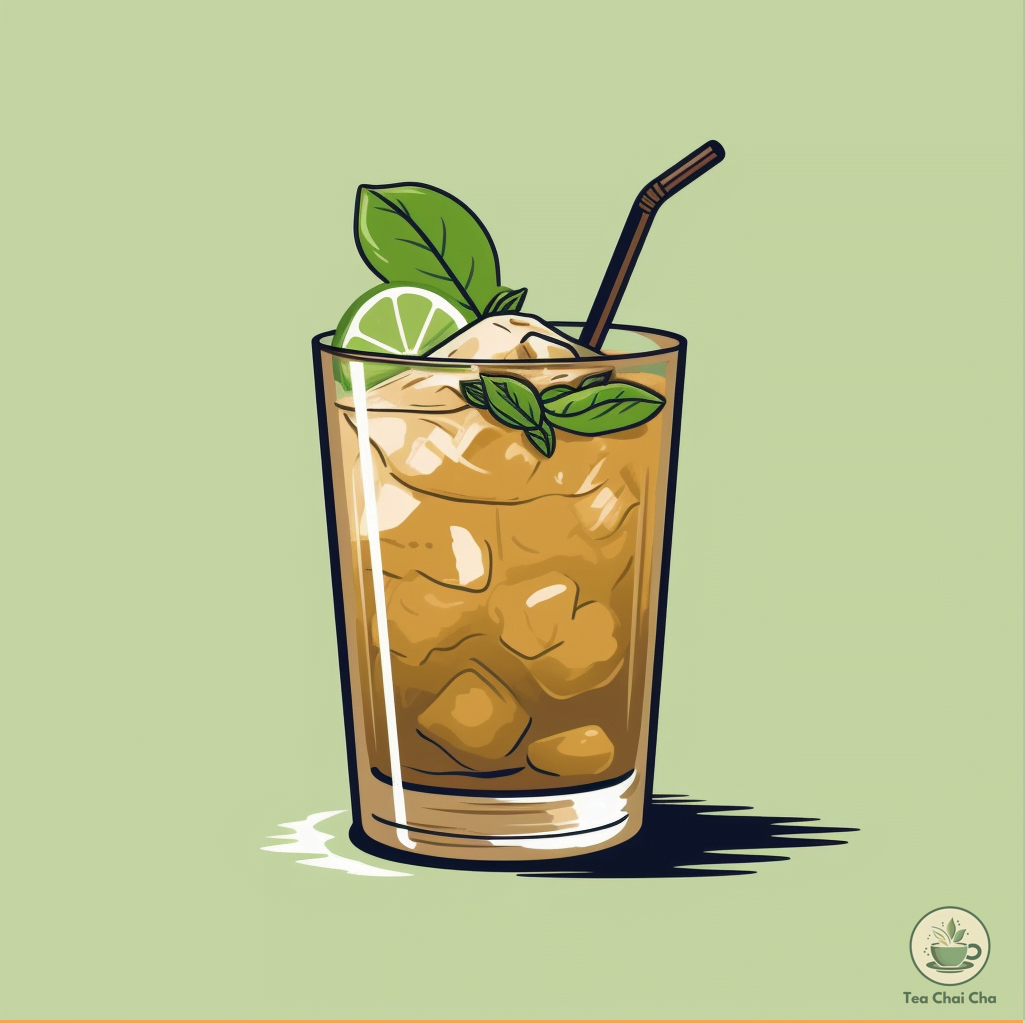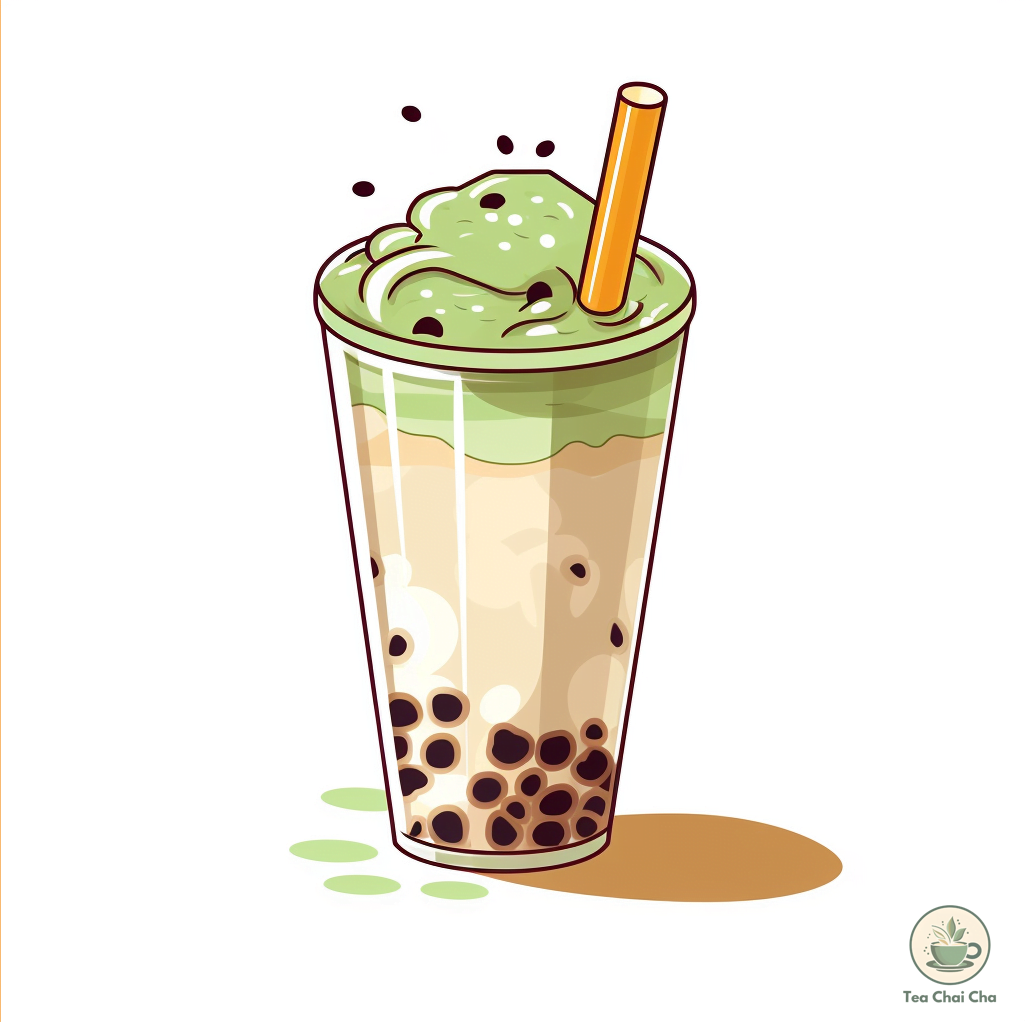Have you ever wondered if your favorite winter melon tea packs a caffeine punch?
Winter Melon tea has this amazing knack for making you feel all cozy and warm inside, but the caffeine question often lingers.
Is it a cup of calm or an energy booster in disguise?
SHORT ANSWER!
Does Wintermelon Tea Have Caffeine In It?
No, winter melon tea does not have caffeine, it’s caffeine-free.
Since it is a fruit tea, it has 0 mg caffeine!
Now that I gave you a glimpse of winter melon tea’s caffeine content, let’s talk a bit more about it, its calories, benefits, and more!
What Is Winter Melon Tea?
Winter melon tea, often called “dong gua cha” in Chinese, is a refreshing and aromatic tea that’s incredibly popular, especially in Asian countries.
But what exactly is it made of?
It’s pretty simple – it’s brewed from the flesh of the winter melon, a unique and mildly sweet fruit.
This melon, despite its name, is typically harvested in the summer when it’s at its peak ripeness.
-> Different Names
Winter melon goes by various names depending on the region and language.
Here are some of the common names for winter melon:
- Winter Melon: This is the most common name used in English.
- Ash Gourd: In some regions, especially in India, it’s known as ash gourd.
- Wax Gourd: This name is also used in some English-speaking countries.
- White Gourd: It’s sometimes referred to as white gourd due to its pale green or white skin.
- Chinese Watermelon: In Chinese, it’s often called “冬瓜” (dōng guā), which translates to “winter melon” but is pronounced differently.
- Togan: In Indonesian, it’s known as “togan or tongan.”
- Fuzzy Melon: The young, hairy version of winter melon is sometimes called fuzzy melon.
- Dong Gua: In some Chinese communities, it’s simply called “dong gua,” which means winter melon.
-> Variations
One of the fantastic things about winter melon tea is its versatility.
You can enjoy it hot or cold, sweetened or unsweetened, and even add a splash of lemon or honey for extra flavor.
It’s like a customizable drink just waiting for you to make it your own.
-> Why It’s Popular
Winter melon tea’s popularity isn’t surprising.
Its natural sweetness makes it a fantastic thirst quencher, and its soothing properties make it an excellent choice for relaxation.
Plus, it’s a healthier alternative to sugary sodas, which explains why it’s gaining popularity outside of Asia too.
-> Where and When
This tea is a star in Taiwan, Hong Kong, and other Asian countries, where it’s commonly found in tea shops and street stalls.
It’s perfect for sipping on a hot summer day to beat the heat, or you can cozy up with a warm cup during the colder months.
10 Winter Melon Tea Benefits
Winter melon tea isn’t just a tasty beverage; it’s also packed with a variety of health benefits that make it a wonderful addition to your daily routine.
Let’s explore some of the fantastic advantages this tea brings to the table.
1. Hydration Hero
Staying hydrated is essential for overall health, and winter melon tea is an excellent way to achieve that goal.
With its high water content, sipping on a glass of this tea helps keep you well-hydrated, especially on scorching summer days.
2. Low in Calories
For those looking to manage their weight, winter melon tea is a fantastic choice.
Winter melon tea has 28 calories per 100 ml!
It’s naturally low in calories, making it a guilt-free option for those watching their calorie intake.
3. Aids Digestion
Feeling a bit bloated or uneasy after a meal?
Winter melon tea can come to the rescue.
It has been known to aid digestion, helping to soothe your stomach and reduce discomfort.
4. Rich in Vitamins and Minerals
Winter melon itself is a nutritional powerhouse, packed with vitamins and minerals like vitamin C, vitamin A, and potassium.
When you brew it into tea, you retain many of these beneficial nutrients.
5. Antioxidant Boost
Antioxidants are the superheroes of the food world, and winter melon tea contains them in abundance.
Winter melon is rich in polyphenols, anthocyanins, and flavonoids.
These antioxidants help fight off free radicals and protect your cells from damage.
6. Regulates Blood Sugar
Some studies suggest that winter melon tea may have a positive impact on blood sugar levels.
This makes it a potential choice for individuals with diabetes or those looking to manage their blood sugar.
7. Stress Buster
The soothing aroma and warm, comforting nature of winter melon tea make it an excellent stress reliever.
A cup of this tea can help you unwind after a long day.
8. Supports Immune Health
The vitamins and antioxidants in winter melon tea can give your immune system a much-needed boost.
So, it helps your body defend itself against illness.
9. Skin-Friendly
The nutrients in winter melon may contribute to healthy, radiant skin.
Regular consumption of this tea may help maintain your skin’s natural glow.
10. Promotes Heart Health
Some research suggests that the potassium in winter melon may help regulate blood pressure, contributing to heart health.

Why Is Winter Melon Tea Caffeine-Free?
You might be wondering why winter melon tea is often caffeine-free when it seems like many other teas have a dose of caffeine.
Let’s take a closer look at why this soothing beverage is caffeine-free.
1. Winter Melon
The primary ingredient in winter melon tea is, as the name suggests, winter melon itself.
Unlike traditional tea leaves, winter melon fruit is naturally caffeine-free.
This means that even the base ingredient of this tea doesn’t contain caffeine, giving it a caffeine-free foundation.
2. A Fruit, Not a Leaf
Most caffeinated teas are made from the leaves of the Camellia sinensis plant, such as black tea, green tea, and oolong tea.
Winter melon tea, on the other hand, is made from the flesh of the winter melon fruit, which is entirely caffeine-free.
It’s like comparing apples to oranges, or in this case, leaves to melons.
So, you can indulge in the mellow sweetness of winter melon tea anytime, day or night, and still enjoy a caffeine-free, stress-free experience.

Does Winter Melon Green Tea Have Caffeine?
Winter melon green tea contains 30-50 mg caffeine per 8. oz cup.
Unlike traditional winter melon tea, winter melon green tea typically contains caffeine.
Green tea naturally contain caffeine in its pure form. as it comes from the Camellia sinensis plant.
When winter melon is added to green tea, it enhances the flavor and sweetness but does not eliminate the caffeine content.
The exact caffeine content in winter melon green tea can vary depending on factors such as:
- Type of green tea used
- Brewing time
- Proportion of winter melon to tea leaves
Generally, a cup of green tea contains around 30-50 milligrams of caffeine, but this can vary.
If you’re looking for a caffeine-free option, you may want to explore herbal teas.
These teas don’t contain any tea leaves from the Camellia sinensis plant, as these are naturally caffeine-free.

Does Winter Melon Milk Tea Have Caffeine?
Yes, winter melon milk tea can have caffeine but it depends.
Caffeine content in winter melon milk tea can vary depending on the recipe and the type of tea used.
Lemme break it down:
-> Yes, it can contain caffeine.
Most traditional winter melon milk tea recipes incorporate caffeinated black tea or green tea as the base.
This means that if these types of tea are used, your winter melon milk tea will contain caffeine.
-> Caffeine-free options are available.
Some winter melon milk tea recipes use caffeine-free herbal teas or tisanes instead of traditional tea leaves.
In such cases, the drink would be caffeine-free.
5 Factors Affecting Caffeine Content in Winter Melon Tea
Ever wondered why your winter melon tea sometimes has a kick of caffeine while other times it’s wonderfully caffeine-free?
Here are the key factors that influence caffeine levels in winter melon tea:
1. Tea Type
Camellia sinensis Teas:
If your winter melon tea starts with traditional tea leaves like black tea or green tea, it’s got caffeine in its DNA.
Black tea tends to pack a bit more caffeine punch than its green counterpart, but both can wake up your senses.
Herbal Teas:
Now, if your winter melon tea takes a detour with herbal teas, like chamomile or mint, as the base, consider it caffeine-free.
These herbal heroes are naturally caffeine-free, offering a gentler sip.
2. Brewing
The longer you let your tea leaves dance in hot water, the more caffeine they’ll release.
So, if you like a milder experience, keep those leaves on a shorter brew time leash.
3. Blend Bling
The main ingredients, like winter melon syrup, milk, or extra flavorings, don’t typically bring caffeine to the party.
They’re here to dazzle your taste buds, not your energy levels.
4. Tea-to-Water Ratio
The proportion of tea leaves or bags to water used during brewing affects the caffeine concentration.
A higher tea-to-water ratio will generally result in a stronger and potentially more caffeinated tea.
5. Your Creation, Your Rules
Remember, the caffeine content might vary based on who’s brewing it.
Whether it’s your kitchen experiment or your favorite tea spot’s concoction, they might tweak the caffeine equation to suit their style.
Caffeine in Winter Melon Tea vs. Other Teas
| Tea Type | Caffeine Content (per 8-ounce cup) |
|---|---|
| Winter Melon Tea | Generally Caffeine-Free (0 mg) |
| Black Tea | 50-90 mg |
| Green Tea | 30-50 mg |
| Oolong Tea | 50-70 mg |
| White Tea | 15-30 mg |
| Herbal Tea (e.g., Chamomile, Peppermint) | Caffeine-Free (0 mg) |
Caffeine in Winter Melon Tea vs. Coffee
When it comes to caffeine, there’s a world of difference between your favorite winter melon tea and a steaming cup of coffee.
Let’s put them head-to-head in this caffeine showdown:
| Beverage | Caffeine Content (per 8-ounce cup) |
|---|---|
| Winter Melon Tea | Generally Caffeine-Free (0 mg) |
| Coffee (Brewed) | 95-165 mg |
-> Winter Melon Tea
Winter melon tea is your go-to for a caffeine-free, mellow experience.
It’s perfect for a serene afternoon or winding down before bed.
This tea’s all about relaxation without the caffeine jitters.
-> Coffee (Brewed)
On the other side of the ring, we have coffee, a caffeine powerhouse.
It’s your wake-up call, your morning ritual, and your energy booster.
With up to 165 mg of caffeine, it’s ready to kickstart your day with a caffeine punch that winter melon tea can only dream of.
Does Winter Melon Tea Make You Sleepy?
You might have heard that a warm cup of winter melon tea before bedtime is the ticket to a peaceful night’s sleep.
But does it really live up to the hype?
Of course! Winter melon tea is a bedtime buddy.
It’s caffeine-free, so it won’t keep you awake.
This cozy brew is like a gentle lullaby, soothing you into a restful sleep.
Just sip in moderation, and dreamland will welcome you with open arms.
Frequently Asked Questions (FAQs)
Is there caffeine in winter melon tea?
No, there is no caffeine in winter melon tea.
Winter melon tea is generally caffeine-free, as it’s typically made from winter melon, a caffeine-free fruit.
Is winter melon milk tea caffeine-free?
No, winter melon milk tea is not always caffeine-free.
Winter melon milk tea can contain caffeine if it’s made with a tea base like black tea or green tea.
However, it can also be caffeine-free if it uses caffeine-free herbal teas.
What is winter melon tea made of?
Winter melon tea is made from the flesh of the winter melon fruit, which is sweet and mild in flavor. It’s often brewed with additional ingredients like sugar or honey for sweetness.
Is winter melon tea healthy?
Winter melon tea is generally considered a healthy beverage.
It’s low in calories, hydrating, and may offer various health benefits, such as aiding digestion and providing antioxidants.
However, added sugars can affect its overall healthiness, so be mindful of sweeteners.
